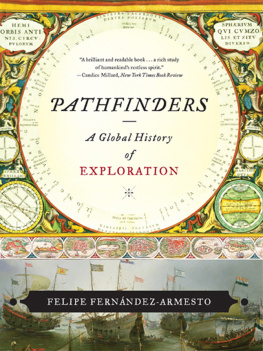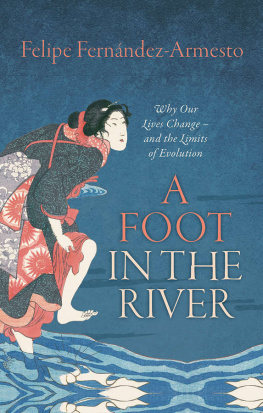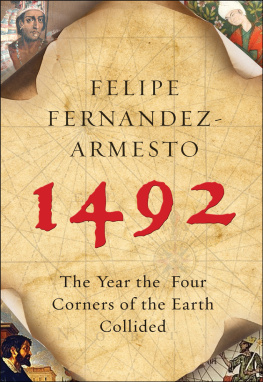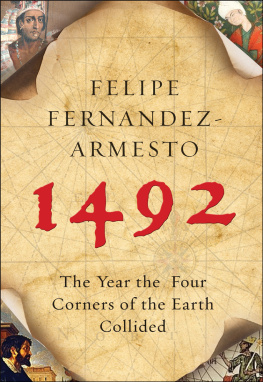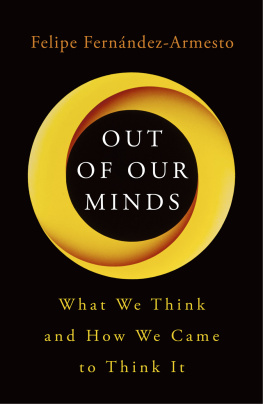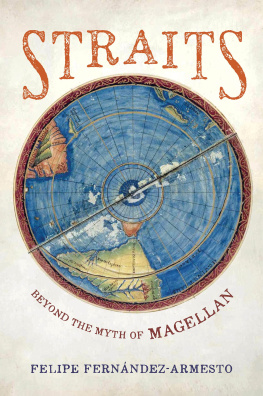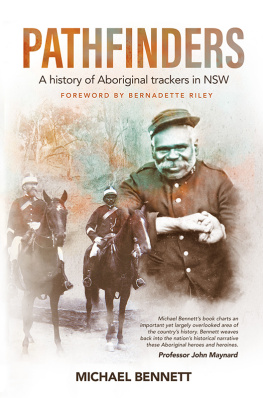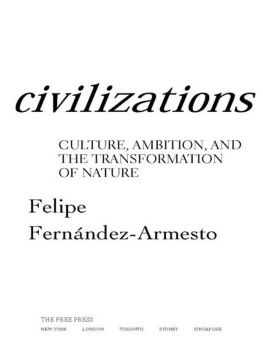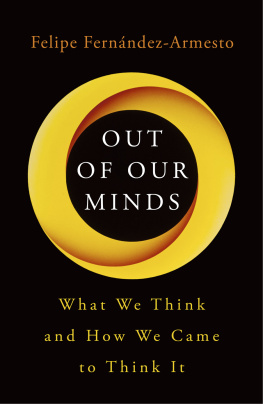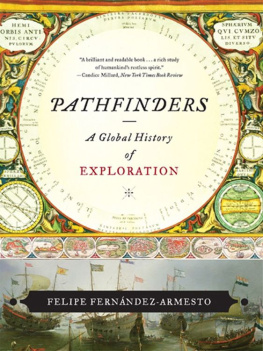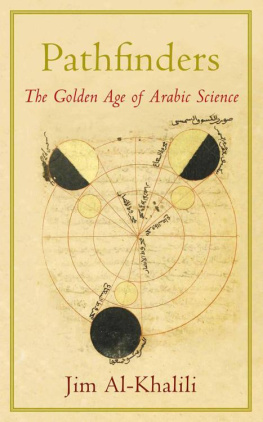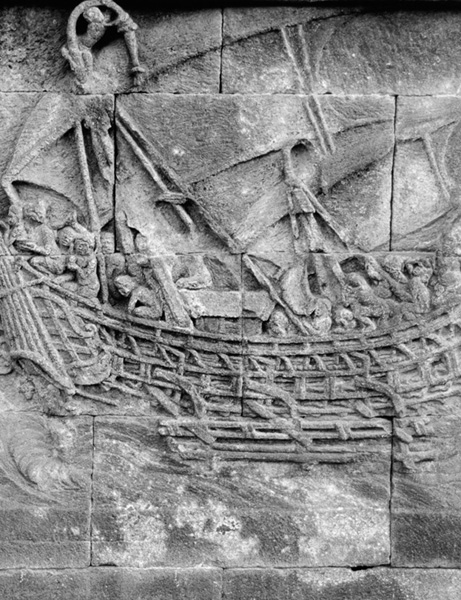
So many gods, so many creeds,
So many paths that wind and wind...
Ella Wheeler Wilcox, The Worlds Need
H ISTORY has two big stories to tell. The first is the very long story of how human cultures divergedhow they parted and developed differences, in ignorance or contempt of one another. The second is the main subject of this book: a relatively short and recent story of convergenceof how human groups got back in touch, exchanged culture, copied each others lives, and became more like each other again.
The first story occupies most of history, extending over about 150,000 years, roughly from the emergence of Homo sapiens almost to the present day: the record of how human cultures formed, became mutually differentiated, drew apart, and grew more disparate and dissimilar, until we got to where we are: in a world teeming with difference, in which pluralism is, paradoxically, the one great shared value we dare not forgo. Imagine a cosmic observer, contemplating humankind from immensely remote space and time, seeing us with the kind of objectivity that wewho are enmeshed in our own historyare unable to attain. Imagine asking herfor, perhaps on the basis of my own experience of home life, I see omniscience and omnipresence as female qualitieshow she would characterize the history of our species on our planet. Imagine her answer. It would be brief: such puny creatures as we are, in such a tiny patch of the universe, would hardly be worth much comment. The cosmic observer would surely say that our history was, above all, experience of increasing diversity.
The second story, which matters so much to us but which, I suspect, the cosmic observer might hardly notice, has overlapped with the first for perhaps the last 10,000 years or so. Gradually, it has become the predominant story, as cultural exchange has speeded up and extended its range, until, today, the way global culture seems to get more and more homogeneouseven more uniformhas become, to us, the most conspicuous theme of human experience all over the world.1
Both stories, I contend, are stories of exploration. But we know too little about the first for it to get more than a few pages coverage in what follows. Societies would never have grown apart without the pathfinders who led them along divergent routes into contrasting environments and separate homelands. They would never have resumed mutual relations, and changed each other, without later generations of explorers, who found the routes of contact, commerce, conflict, and contagion that rejoined them. Explorers were the engineers of historys infrastructures, the builders of the causeways of culture, forgers of links, spinners of webs.
Convergence generated a lot of surviving evidence; the era of divergence has left almost none. Convergence is the story we think of as ours: it is what we need to explain to ourselves in order to understand the world we live in and plan its future. That is the justification for devoting a book to explaining how it happened. But, first, it is worth looking back briefly at the work of the pathfinders who led human communities apart from one another, because that work, too, was a triumph of exploration. By sketching it into the background, we can see the achievement of later explorers in more vivid relief, and understand how important it was in the making of the world we live in now.
Divergence Begins
The big question for historians is Why does history happen? You can see the point of the question if you compare humans with other social and cultural animals. Human societies change much faster than those of other species. The process of change, which we call history, is so slight and slow for most species, or so unvaried or so repetitive, that a history of, say, a school of whales or a colony of ants is almost unthinkable. It is just about possible to write the history of a tribe of chimpanzees. Jane Goodall chronicled the crises and conflicts of leadership among chimpanzees she observed in the wild, and her narrative is not unlike an account of the politics of some simple human groupsthe history of a gang, say, or an ill-regulated chieftaincy. Another pioneering primatologist, Frans de Waal, has exposed the structures of chimp power politics and likened the principles of chimpanzee politics to those of Machiavelli, as rivals for leadership conspire for support, wage campaigns of subversion, and conduct coups.2
Still, as far as we know at the present stage of research, even chimpanzee societies, which, among those of non-human creatures, most resemble our own, have none of the dazzling volatility of human culture. Among chimps, and other nonhuman social animals, political changes happen within predictable parameters. The leaders change, the alliances form, split, and form again, but the patterns are always the same. Nor do chimpanzee groups differ nearly as much from one another in other kinds of culture as humans do. Nor do those of other cultural species.
Nonetheless, chimpanzees and many other animals certainly have culture: they develop new practices, techniques, and strategies for coping with their environments, especially for gathering and distributing food. They teach and learn those strategies and pass them down from generation to generation. In some ways and in some rare instances, it even makes sense to speak of chimpanzees ritualizing food distribution: hunting chimps, for instance, distribute the food they gain in fairly fixed patterns, roughly determined by the hierarchy of the tribe and the sexual strategies of the leading hunters. Once they have acquired cultural innovations, cultural animals transmit them by tradition. In consequence, cultural divergence begins. Separated groups grow unlike each other. In the forests of Gabon, for instance, some chimpanzee groups fish for termites with sticks; others crack nuts with stones they use as hammers and anvils. In the East African plains, some baboon societies practice serial monogamy, while others are organized in harems by polygamous males. In Borneo and Sumatra, orangutans play different games. In the best-documented case, which developed under the eyes of primatologists in Japan, a macaque monkey genius called Ima discovered how to wash sweet potatoes, and taught the practice to her tribe. That was in 1950. Ever since, the monkeys have continued the practice, which has remained unique to their colony.3
Against this background, it is not surprising that human cultures, too, change and, therefore, diverge. After all, humans are primates and we should expect our history to evince primate characteristics. What we want to know, however, is why human societies diverge so much, and why they change so fast.
In the effort to understand these questions, the best point to start from is our most recent common ancestor: the womanor, rather, the strand of DNAthat paleoanthropologists know as the mitochondrial Eve, about 150,000 years ago.4 In Eves day, we can reasonably suppose, the few thousand humans who inhabited East Africa shared the same culture: the same economy, the same technology, the same food, and, presumably, if such things existed at so early a date, the same sort of religion and language. Slowly and fitfully at first, unknown, unnameable explorers began to steer communities out of the homeland of the mitochondrial Eve into new environments, where they changed to adapt. They lost touch with each other and started to develop increasing differences in relative isolation.5
The first great problems of the history of exploration are therefore: How did people spread over the world? How was it possible? Who led them and why? How did they change along the way?
These are really big, really perplexing problems, which no comparisons can help us solve. Other species remain much more resolutely committed to the environments to which they are best adapted. When they migrate, they do so seasonally, in search of environmental stability. When they disperse, they stick to contiguous areas and often revert to their former habitat at the end of whatever crisis moved them. Foxes are almost as widely dispersed as human beings, but there are far wider genetic variations among different species of foxes, from one habitat to another, than are measurable between groups of humans. Some help in understanding how and why people migrated may be offered by other cases of species which have crossed environments: a well-studied recent case is that of the mountain gorillas of Rwanda, who seem to have moved into their present high, relatively cold habitat as refugees from the competitive environment of the tropical forest lowlands. At the cost of depleted foraging, which has perhaps contributed to make these exclusively vegetarian creatures smaller and weaker than other gorillas, they have forged a viable way of life. But this is a case of very limited relocation in an environment adjacent to the gorillas former habitat. It cannot be a model for explaining the long reach of the first human colonizers.
Next page
